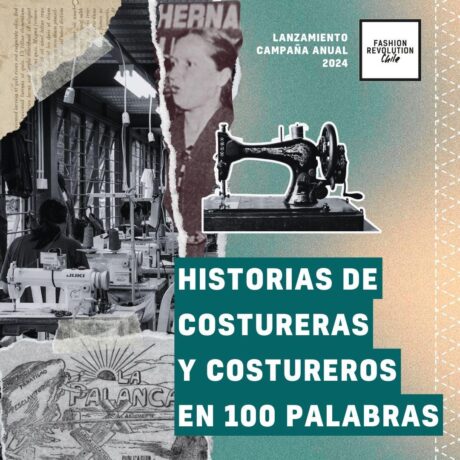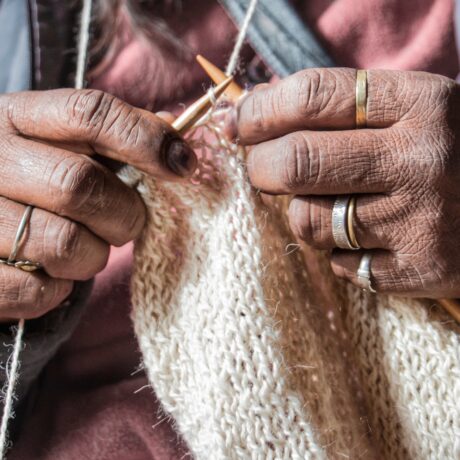Felt-making at 3600m above sea level
“We never thought that doing felting would be an opportunity for us to improve the lives of us and our children” Felipa Yanarico and Mercedes Pacofilo
In the city of El Alto, 3600 metres above sea level, in one of the more distant neighborhoods lives a group of Aymara indigenous women, whose parents migrated from the countryside to the city looking for a better life for their families. But the city is not a easy beast to tame and the girls were uneducated in helping the survival of their families.
When their hope of a better life for themselves and their families was ending, a German missionary arrived, gathered together all the women and taught them to create simple objects using felting technique with sheep’s wool. While the missionary was in the city of El Alto this group prospered, but when the german woman left, although the women kept up with the techniques they had learned, they had no market to sell their products.
This large number of women divided into smaller groups of 6-8 people and tried to sell their products to different types of customers, but none fulfilled their expectations and they sold very little. When they arrived at Ayni Bolivia, a fair trade organization, at the recommendation of another producer, they found many challenges. Felipa and Mercedes, the group leaders of family producers, decided to overcome these challenges and pass on the knowledge to their families. First to learn what it is fair trade, and then all the demands of new markets and the need for high quality and good design.

“If they don’t want sheep’s wool, we’ll make our products in alpaca, and they will be the best, we will learn whatever is needed to make it” were the words of Margarita, a group member who was enthusiastic about the idea to use alpaca. It was not an easy process because the alpaca is not as easy to felt as the sheep’s wool, but they did not give up and fought with trial and error until they found the right technique and the various secrets it has.
Now after three years, they can make a variety of products in alpaca felt, like fabrics for designers who need something unique, organic flowers for the brides bouquets and beautiful hats. They always take on new challenges and work harder and better, use proper dyes and follow designs exactly. For these women who only learned how to read and write, it is a whole challenge.
Every time I have their product in my hands I can feel the momentum and effort with has been made. Well, I have had the privilege of working alongside their creators, women who despite having so few opportunities in life, made the most of them in order to improve their lives and the lives of their children. Being with them and sharing their lives, their accomplishments and defeats has greatly enriched my life because I have a force that lights the way to go.
Ayni Bolivia is a fair trade organization guaranteed by WFTO
El impulso de las mujeres aymaras
“Nunca pensamos que hacer fieltro sería una oportunidad para nosotras de mejorar nuestras vidas y la de nuestros hijos” Felipa Yanarico y Mercedes Pacofilo
En la ciudad de El Alto a más de 3600m.s.n.m, en uno de los barrios más alejados vive un grupo de mujeres indígenas aymaras, cuyos padres migraron del campo a la ciudad buscando una mejor vida para sus familias, pero la ciudad no es una fiera fácil de domar y las niñas se quedaron sin estudios ayudando a la supervivencia de sus familias.
Cuando su esperanza de conseguir una mejor vida para ellas y sus familias se acababan una misionera alemana llegó, reunió a todas las mujeres y les enseño a hacer fieltro de oveja, creando objetos sencillos. Mientras la misionera estuvo en la ciudad de El Alto este grupo de mujeres prospero pero al irse la misionera ellas se habían quedado con lo aprendido en técnica pero sin los mercados donde vender sus productos.
Este gran número de mujeres se dividió en grupos pequeños de 6 a 8 personas y trataron de vender sus productos a diversos tipos de clientes pero ninguno llenaba sus expectativas y vendían muy poco. Cuando llegaron a Ayni Bolivia, una organización de comercio justo, por recomendación de otro productor, encontraron muchos desafíos que Felipa y Mercedes, las líderes del grupo de productoras familiar, decidieron asumir y luego trasmitir a sus familiares. Primero a aprender que es el comercio justo y luego todas las exigencias de los nuevos mercados que necesitan alta calidad y un lindo diseño.
– “Si ya no quieren oveja, en alpaca vamos a hacer y nuestros productos. Van a ser los más lindos, vamos a prender lo que sea para poder lograrlo” fueron las palabras de margarita otra compañera que le entusiasmó la idea de usar alpaca, no fue un proceso fácil pues la alpaca no es tan fácil de afieltrar como la oveja pero ellas no se rindieron y lucharon a prueba y error hasta encontrar con la técnica adecuada y los varios secretos que tiene.
Ahora después de tres años, ellas pueden hacer gran variedad de productos en fieltro de alpaca, como telas para diseñadores que necesitan algo único y especial, flores ecológicas para los bouquets de las novias y hermosos sobreros. Siempre asumen nuevos retos de como trabajar más y mejor, usar los tientes adecuados y seguir los diseños al pie de la letra, que para estas mujeres que apenas aprendieron a leer y escribir es todo un desafío.
Cada vez que tengo un producto suyo en mis manos puedo sentir el ímpetu y esfuerzo con el que ha sido hecho. Pues he tenido el privilegio de trabajar al lado de sus creadoras, mujeres que pese de tener tan pocas oportunidades en la vida las aprovecharon al máximo porque quieren superarse y darles a sus hijos una mejor vida. Estar con ellas y compartir su vida, sus logros y también derrotas ha enriquecido mucho mi vida pues tienen una fuerza que te alumbra el camino para seguir.







